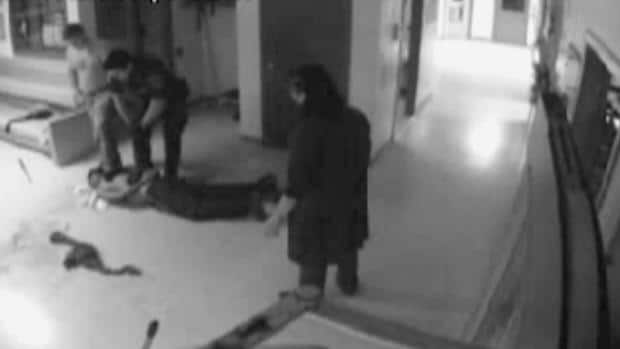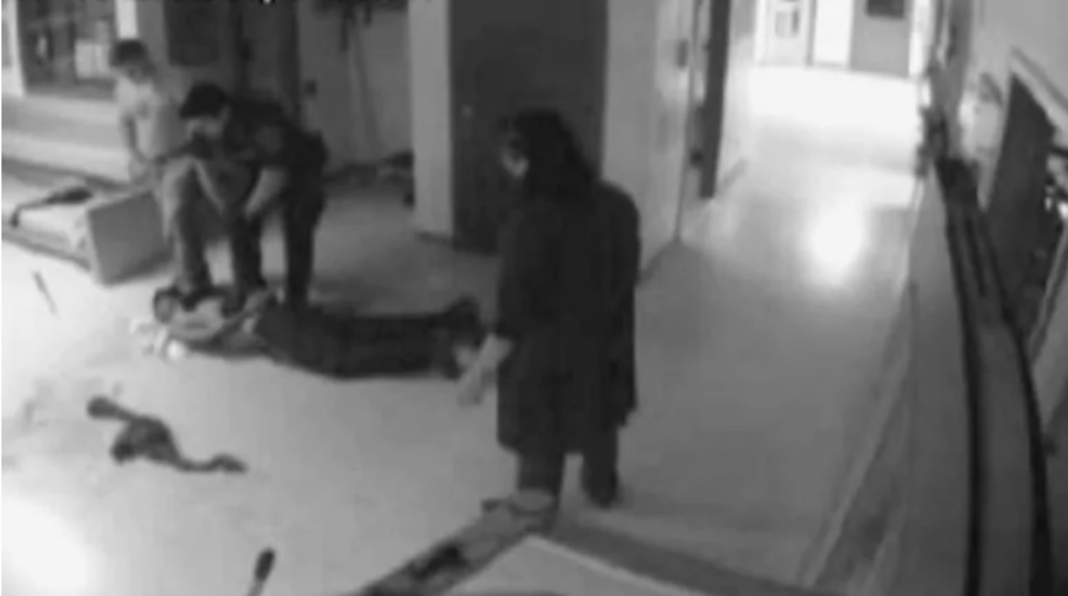Nurse in northern community called police in 2010, concerned about Romeo Wesley’s erratic behaviour
Jody Porter · CBC News · Posted: Jul 26, 2017 7:00 AM ET | Last Updated: July 26, 2017

The death of an Ontario First Nations man who was pepper sprayed, beaten, handcuffed and stepped on by two police officers was accidental, a coroner’s inquest has determined.
Romeo Wesley lived in the remote northern community of Cat Lake First Nation, where the inquest concluded and the decision was released July 20. The jury also released dozens of recommendations.
In 2010, Wesley went to the nursing station in the community about 400 kilometres north of Thunder Bay, seeking help for symptoms including shortness of breath. A nurse concerned about his erratic behaviour called Nishawbe-Aski police.
- 2 police officers step on handcuffed man’s back as doctor watches at First Nation nursing station
- First Nation chief wants police held to account in death of man pinned face down in handcuffs
- Inquest into death of First Nations man kicked, beaten and stepped on by police wraps up this week

Two officers pepper sprayed Wesley, tackled him to the floor, then used a baton to beat on his arms so they could handcuff his hands behind his back. He stopped breathing while they were holding the 34-year-old face down on the floor with their boots on his back, head and neck.
Neither the doctor, who was visiting the nursing station, nor the nurses came to Wesley’s aid until one of the officers asked for a check on Wesley’s vitals after he stopped breathing.
The inquest found the cause of Wesley’s death was “struggle and restraint (chest compression, prone positioning, handcuffing) as well as agitation and trauma (pain)….with acute alcohol withdrawal/delirium tremens.”
Jurors ruled the manner of death as accidental.

Watch
GRAPHIC WARNING: Coroner releases video of Indigenous man dying while restrained by police
- 3 years ago
- 1:00
Cat Lake First Nation inquiry begins into death of Romeo Wesley 1:00
The jury’s 53 recommendations to prevent similar deaths include:
- Better training for police on how to deal with individuals in medical crisis, and how to monitor people’s health if they are held prone positions during arrests.
- Developing a protocol on police intervention at medical facilities in Indigenous communities.
- Ensure nurses in Indigenous communities get cultural awareness training before getting placed in a community.
- Hiring medical staff and police officers who speak the language of the communities they serve.
- Designating Nishnawbe-Aski Police Services as a police force under the Police Services Act in Ontario. Currently First Nations police services do not fall under the act, so there is little civilian oversight for deaths involving their officers.
Wesley had a “bumpy start” in life, but grew to be a good hunter who knew the land well, Cat Lake band manager Alec Oombash told CBC News before the inquest began.
“The community was always behind him,” Oombash said. “He was loved.”CBC’s Journalistic Standards and Practices|About CBC NewsReport Typo or Error
RELATED STORIES
- First Nation chief wants police held to account in death of man pinned face down in handcuffs
- VIDEO 2 police officers step on handcuffed man’s back as doctor watches at First Nation nursing station
- First Nation questions police presence at inquest into man’s death while in custody











